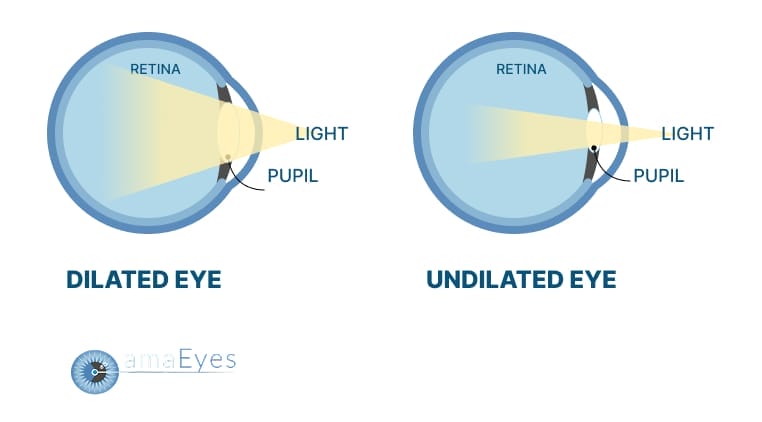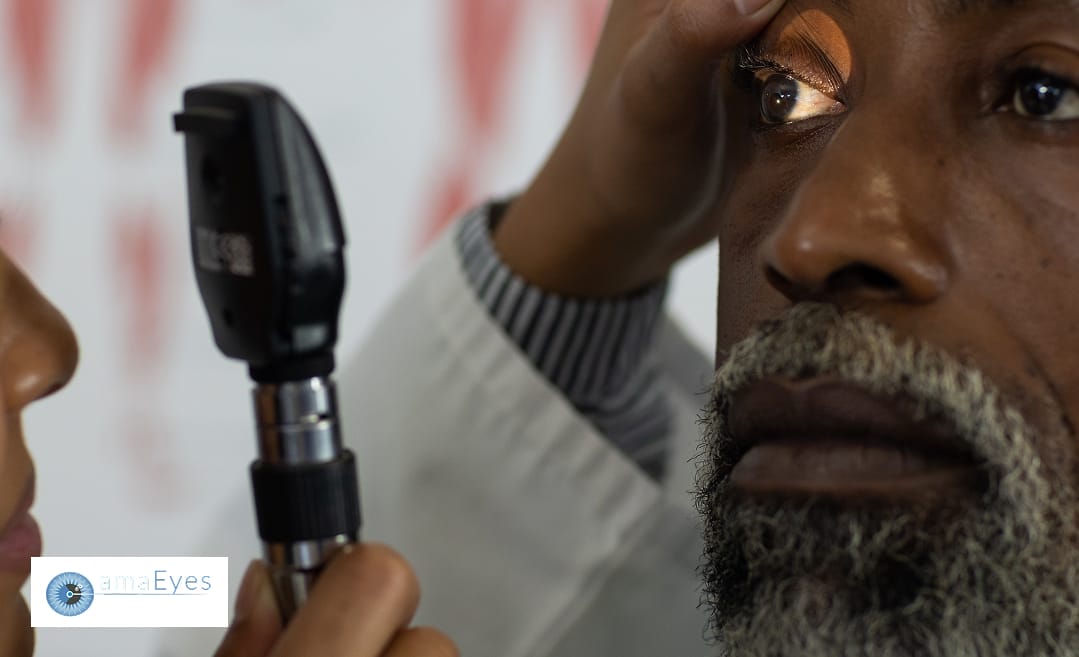Eye dilation remains one of the most misunderstood yet essential components of comprehensive eye care. Many patients feel apprehensive about this routine procedure, often because they don’t fully understand its critical role in protecting their vision and overall health. It’s natural to wonder, why do eye doctors dilate your eyes, especially when the effects can feel inconvenient—but that question highlights just how important this step is in safeguarding long-term eye health.
During a dilated eye exam, your eye care provider gains access to areas of your eye that would otherwise remain hidden during a standard examination. This expanded view allows for the early detection of serious eye diseases that could threaten your sight if left undiagnosed. The National Eye Institute emphasizes that comprehensive dilated eye exams are essential for maintaining optimal eye health throughout your lifetime.
While the temporary effects of dilating eye drops can feel inconvenient, this procedure serves as one of the most powerful tools in preventive eye care. Understanding the science behind eye dilation, its importance in detecting serious eye conditions, and what to expect during and after the procedure can help transform your perspective on this vital aspect of your eye health routine.

What’s Actually Happening When Eye Doctors Your Eyes
When your eye doctor places those dilating eye drops in your eyes, they’re temporarily paralyzing the tiny muscles that control your pupil size. Think of your pupil as the aperture of a camera—normally, it automatically adjusts to control how much light enters your eye. In bright conditions, your pupil constricts to let in less light, and in dark conditions, it expands to gather more light.
The dilating drops override this natural response, forcing your pupil to stay wide open regardless of lighting conditions. This process allows significantly more light to enter your eye, which is exactly what eye doctors need for a thorough examination of your eye’s inner structures.
You might notice that the dilation process doesn’t happen instantly. It typically takes about 20 to 30 minutes for your pupils to fully dilate, though some people dilate faster than others. Interestingly, people with brown eyes often take longer to dilate than those with lighter-colored eyes, and the effects can last anywhere from four to six hours, sometimes longer.
During this time, your dilated pupil can’t adjust to different lighting conditions, which explains why you experience such intense light sensitivity and why reading or focusing on close objects becomes challenging. The pupil lets in so much more light than usual that even normal indoor lighting can feel overwhelmingly bright.
Related Article: Eye Drop Recalls

The Real Purpose Behind Your Comprehensive Dilated Eye Exam
Here’s the heart of why eye doctors dilate your eyes: it’s the only way they can thoroughly examine the back of the eye, including the retina, optic nerve, and the intricate network of blood vessels that nourish these crucial structures. Without dilation, eye care providers are essentially trying to look through a keyhole—they can see some things, but they’re missing the complete picture.
During your comprehensive eye examination with dilated pupils, your eye doctor uses special tools and bright lights to examine areas that would otherwise remain hidden. They’re looking at the optic nerve, which carries visual information from your eye to your brain. They’re checking the condition of your retina, the light-sensitive tissue that lines the back of your eye. They’re also examining the blood vessels, which can reveal signs of systemic health issues like high blood pressure or diabetes.
An undilated pupil simply doesn’t allow enough light to reach these areas for a complete assessment. It’s like trying to inspect a room through a partially opened door; you might catch glimpses of problems, but you could easily miss something important happening in the corners or along the walls.
This comprehensive view is what makes the dilated exam such a crucial part of maintaining your overall eye health and catching potential vision problems before they progress. The colored part of your eye, your iris, normally blocks much of the view to these inner parts of the eye.
Eye Diseases That Can Only Be Detected Through Dilation
The reason the National Eye Institute and the American Academy of Ophthalmology emphasize the importance of regular comprehensive dilated eye exams becomes clear when you understand what conditions can be detected in their earliest stages:
- Diabetic retinopathy: This complication of diabetes damages the blood vessels in your retina and is a leading cause of vision loss. Early stages often have no symptoms, but eye doctors can spot the warning signs during a dilated exam and recommend treatment options before your vision is affected.
- Age-related macular degeneration: This condition affects the central part of your retina and can cause significant vision problems if left untreated. Early detection through dilated examination allows doctors to monitor progression and discuss preventive measures to prevent vision loss.
- Glaucoma: Often called the “silent thief of sight,” glaucoma can damage your optic nerve without causing noticeable symptoms until vision loss has already occurred. A dilated exam lets doctors assess your optic nerve health and detect early changes.
- Retinal detachment: This serious condition requires immediate treatment to prevent permanent vision loss. During a dilated exam, eye care providers can identify risk factors and early warning signs that might not be visible otherwise.
- Eye tumors: While rare, tumors in or around the eye can be detected during comprehensive dilated examinations, often before they cause symptoms.
The common thread among these common eye diseases is that they often develop silently, without obvious symptoms in their earliest and most treatable stages. By the time you notice vision changes, significant damage may have already occurred. This is why regular dilated exams are so important: they allow eye doctors to catch these problems when treatment can be most effective at preserving your vision.
Related Article: How Regular Eye Exams Can Prevent Long-Term Vision Loss

Who Needs Dilated Eye Exams and How Often
The National Eye Institute recommends comprehensive dilated eye exams for everyone, but certain risk factors mean some people need them more frequently. If you have diabetes, your eye care provider will likely recommend annual dilated exams because diabetic retinopathy can develop and progress quickly. Similarly, if you have high blood pressure, regular dilated exams help doctors monitor how this condition might be affecting the blood vessels in your eyes.
Your family history plays a significant role in determining your examination schedule. If close relatives have had glaucoma, macular degeneration, or other eye diseases, you may need more frequent monitoring. African American individuals face a higher risk for certain eye conditions, like glaucoma, and may benefit from earlier and more frequent comprehensive eye examinations.
Age is another important factor. While everyone benefits from baseline exams when they’re younger, the frequency typically increases as people get older. Your first eye exam should establish a baseline for your eye health, and subsequent exams help doctors track any changes over time. The American Optometric Association provides guidelines for how often different age groups should get a dilated eye exam.
Your eye doctor will work with you to determine the right schedule based on your individual risk factors, overall health, and family history. This personalized approach ensures you’re getting the appropriate level of care for your specific needs.
What to Expect: Managing the Temporary Side Effects
The temporary effects of eye dilation can be frustrating, but understanding what to expect can help you prepare and manage the experience better. The most common side effects you’ll experience are blurry vision, particularly when trying to focus on close objects, and significant light sensitivity. You might find yourself retreating to a dark room to find relief from the bright light.
Here’s what can help you manage these temporary changes:
- Plan for transportation: Because your vision will be compromised, especially in bright light, arrange for someone to drive you home or plan to use public transportation. Driving with dilated pupils isn’t safe and isn’t recommended.
- Bring sunglasses: Even on cloudy days, you’ll find that normal lighting feels uncomfortably bright. Quality sunglasses can make the journey home much more comfortable and protect your eyes from excessive light.
- Expect difficulty with close work: Reading, using your phone, or doing detailed work will be challenging for several hours. Plan accordingly and avoid scheduling important tasks that require clear near vision immediately after your eye appointment.
- Know the timeline: Most people find their vision returns to normal within four to six hours, though it can occasionally take longer. If you wear glasses for distance vision, you can still wear them, but they won’t help with the temporary focusing problems caused by dilation.
Serious allergic reactions to dilating drops are rare, but you should contact your eye care provider if you experience severe eye pain, nausea, vomiting, or signs of an allergic reaction. Most people experience only the expected temporary blurriness and light sensitivity. The dilating eye drops used today are generally very safe, though some people may experience mild stinging when the drops are first applied.
Your Vision is Worth the Temporary Inconvenience
Dealing with dilated pupils for a few hours isn’t anyone’s idea of fun. The blurry vision, light sensitivity, and general inconvenience can feel frustrating, especially if you have a busy schedule. But understanding why eye doctors consider comprehensive dilated eye exams such an essential part of your overall health care can help put the experience in perspective.
Your vision is irreplaceable, and many of the most serious eye diseases that can steal your sight are preventable or treatable when caught early. That temporary inconvenience you experience after your eye appointment? It’s a small price to pay for the peace of mind that comes with knowing your eyes are healthy, or for the early intervention that could save your vision if problems are discovered.
The next time you’re sitting in that dark room after your eye exam, squinting at the world through dilated pupils, remember that you’ve just taken one of the most important steps you can take to protect your vision for years to come. Your eyes—and your future self—will benefit from this investment in preventive care.
Regular comprehensive eye exams, including the dilated portion, are essential for maintaining good vision and overall eye health throughout your life. Don’t put off your next comprehensive eye exam. Your vision and overall health are worth this small investment in preventive care.
